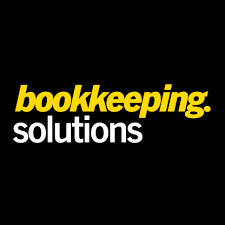Double-Entry Bookkeeping Demystified: A Simple Beginner’s Guide
If you’ve ever looked at your business finances and thought, “Why are there two entries for every transaction?”, you’re not alone. Double-entry bookkeeping might sound intimidating, but once you get the hang of it, it’s one of the most powerful tools for managing your business finances. Whether you’re a freelancer, small business owner, or someone just diving into accounting, this guide will help you understand double-entry bookkeeping step by step — no jargon, just clarity. What Is Bookkeeping and Why Does Double-Entry Matter? Bookkeeping is simply the process of recording financial transactions. But here’s the kicker — how you record them can make a big difference. The double-entry method isn’t just an accounting trick. It’s a system that ensures everything balances. It helps you avoid costly mistakes, detect fraud, and understand where your money is really going. What Is Double-Entry Bookkeeping? Definition Double-entry bookkeeping is a system where every transaction affects at least two accounts — one is debited, the other is credited. For example, when you buy office supplies with cash, your Expenses go up (debit) and your Cash goes down (credit). A Little History This method dates back to the 15th century and was formalized by Italian mathematician Luca Pacioli, who’s often called the “father of accounting.” And guess what? His system is still the foundation of modern accounting today. It’s stood the test of time — and for good reason. Why It Still Matters In the age of automation and apps, you might wonder why double-entry is still relevant. The answer: it keeps your records accurate, helps you spot issues fast, and ensures your business stays financially healthy. The Core Principles of Double-Entry Bookkeeping Debits and Credits Explained Here’s where most beginners get confused. You might think debit means “money out” and credit means “money in” — but that’s not always true. Let’s simplify: Debit: Increases assets or expenses, decreases liabilities or equity. Credit: Increases liabilities or equity, decreases assets or expenses. Think of debits and credits like the two sides of a scale — one always balances the other. The Accounting Equation Double-entry bookkeeping is based on a rock-solid formula: Assets = Liabilities + Equity This equation must always stay balanced. When you make a transaction, the total amount you debit must equal the total amount you credit. That’s how everything stays in check. Why Small Businesses in the USA Should Use Double-Entry It Helps Catch Errors If something doesn’t balance, you know something’s wrong — immediately. That’s a lifesaver when managing cash flow, filing taxes, or applying for loans. Better Tax Compliance Let’s face it — U.S. tax laws can be complicated. With a solid double-entry system, you’ll have all the documentation you need for the IRS at tax time. Easier Loan and Investor Reporting Banks and investors love clean financial records. Want funding? Show them your accurate books. Double-entry gives your business credibility. Double-entry bookkeeping is the standard in modern accounting and has been for centuries. According to Investopedia, every transaction must affect at least two accounts to keep your books balanced. The IRS even outlines the importance of proper recordkeeping for tax compliance. If you’re just starting out, the SBA offers helpful resources for setting up your bookkeeping system correctly. The Key Accounts You’ll Track There are five main types of accounts in double-entry bookkeeping: Assets What your business owns — cash, inventory, equipment, accounts receivable, etc. Liabilities What your business owes — loans, unpaid bills, credit card balances. Equity Your ownership in the business. Think retained earnings or invested capital. Revenue Money coming in — sales, services, interest income, etc. Expenses Money going out — rent, payroll, office supplies, utilities. Understanding these categories is like learning the alphabet of accounting. Once you know them, everything becomes easier to organize. How a Transaction Works in Double-Entry Let’s break it down with an example. Real-Life Example You purchase a $500 laptop for your business and pay in cash. Debit: Equipment (Asset) → $500 Credit: Cash (Asset) → $500 Your books still balance because one asset went up while another went down. Journal Entries This is where the transaction first gets recorded. A journal entry looks like this: javascript CopyEdit Date Account Debit Credit 07/01/25 Equipment 500 Cash 500 Posting to the Ledger After journaling, entries are transferred to the general ledger — a master record of all accounts. This helps you generate reports like the balance sheet and income statement. Tools to Help You Get Started Manual vs. Software-Based Bookkeeping You can track everything in a spreadsheet, but let’s be real — it gets overwhelming fast. Plus, one typo can throw your whole system off. Best Software for Beginners Here are some beginner-friendly options (used widely in the U.S.): QuickBooks – Great for small businesses Xero – Clean interface and strong integration tools Wave – Free and perfect for freelancers Most of these handle double-entry behind the scenes — but it’s still good to know what’s happening under the hood. Common Mistakes to Avoid Mixing Up Debits and Credits It happens to everyone. Just remember that the impact of a debit or credit depends on the type of account. Ignoring the Trial Balance The trial balance checks if total debits = total credits. Don’t skip it. It’s your first red flag detector. Not Recording Transactions Immediately Delaying entries can lead to missed income, forgotten expenses, and messy books. Set aside time each week (or use software that updates in real time). When to Hire a Bookkeeper or CPA If your business is growing, taxes are getting complicated, or you just don’t have the time — it’s time to call in the pros. A bookkeeper handles daily records, while a CPA (Certified Public Accountant) helps with tax strategy, financial planning, and audits. FAQs Beginners Usually Ask About Double-Entry “Do I need to understand this if I use accounting software?” → Yes, at least the basics. “Is this required for taxes?” → It’s not required for sole proprietors, but it’s strongly recommended. “How long does
Read MoreDo You Need a Bookkeeper or Can You Do It Yourself? The Ultimate 2025 Guide
Do you need a bookkeeper or can you do it yourself in 2025? That’s the question thousands of freelancers, small business owners, and self-employed Americans are asking this year. With AI tools, automation, and easy-to-use software, doing your own books seems tempting. But is it the smartest move? Let’s break down the pros, cons, and the best option for your financial peace of mind. The Changing Landscape of Bookkeeping in 2025 Technology has totally transformed bookkeeping. Cloud-based platforms, AI tools, and automated bank feeds have made it easier than ever to track income and expenses. But does that mean everyone should ditch their bookkeeper? Not quite. Why This Question Matters More Than Ever With more small business owners managing their finances solo and freelancers juggling multiple gigs, understanding how bookkeeping fits into your financial life is crucial. Getting it wrong can lead to tax penalties, cash flow issues, and costly mistakes. What Is Bookkeeping, Really? A Quick Overview for Beginners Bookkeeping is the process of recording and organizing all financial transactions—everything from sales and receipts to expenses and payroll. It’s the foundation of financial reporting and decision-making. Bookkeeping vs. Accounting: What’s the Difference? Think of bookkeeping as the groundwork and accounting as the analysis. Bookkeepers record what happened. Accountants help you understand what it means. The Case for DIY Bookkeeping Do You Need a bookkeeper or Can You Do It Yourself? The Case for DIY Bookkeeping If you’re a solo freelancer, have minimal transactions, or are just starting out, DIY bookkeeping can be a smart move. With modern tools, tracking finances has never been easier. Pros of Doing Your Own Books 💵 Saves money: No need to hire outside help. 🎯 Full control: You know exactly where every dollar goes. ⏱️ Flexible timing: Do it when it works for you—no waiting on someone else. Common Tools Used by DIYers Popular choices in 2025: QuickBooks Online Wave Accounting FreshBooks Zoho Books Excel/Google Sheets (for minimalists) These platforms automate much of the work—connecting bank feeds, categorizing expenses, and generating reports. Cost Savings vs. Time Spent Yes, you’ll save on professional fees. But time is money, too. If bookkeeping takes you 5–10 hours a month, consider what that time could earn elsewhere. The Risks of DIY Bookkeeping Mistakes That Could Cost You Miss a deduction? Misclassify a transaction? Enter a duplicate? Even small errors can lead to: Overpaying taxes IRS audits Inaccurate financial statements IRS Penalties and Compliance Issues In the U.S., late filings and inaccurate reporting come with serious penalties. In 2025, automation helps—but you’re still responsible for compliance. When Bookkeeping Becomes Overwhelming “For small businesses in the U.S., the question ‘Do you need a bookkeeper or can you do it yourself’ is more relevant than ever.” As your business grows, so does your workload: More transactions Payroll Inventory tracking Sales tax filings (especially for eCommerce) At some point, DIY stops being sustainable. The Case for Hiring a Bookkeeper What Does a Bookkeeper Actually Do? Bookkeepers do more than data entry. They: Reconcile bank accounts Manage accounts payable and receivable Prepare financial statements Track cash flow Handle payroll and sales tax Benefits of Having a Pro on Your Side ✅ Accuracy: Less risk of costly mistakes ✅ Saves time: Focus on growing your business ✅ Peace of mind: Everything is compliant and organized What to Expect in Terms of Cost In the U.S., bookkeepers charge anywhere from: $25 to $60/hr (freelance) $200 to $600/month (small business package) $1,000+ per month (for larger businesses) Freelancers vs. Bookkeeping Firms Freelancers: Affordable, flexible, and personal. Firms: More structured, offer scalability and support for tax filings, payroll, etc. How to Decide: DIY or Bookkeeper? “Still wondering: Do you need a bookkeeper or can you do it yourself?” A Checklist to Help You Choose Ask yourself: Do you understand double-entry bookkeeping? Are you confident using accounting software? Do you have the time? Is your business growing? Have you made errors before? If you answered “No” to most of these, hiring help might be your best bet. Do you need a bookkeeper or can you do it yourself?” you’re not alone. Many U.S. business owners are facing this same dilemma in 2025. Questions to Ask Yourself Before You Decide What’s the cost of a mistake? Could my time be better spent elsewhere? Am I falling behind on my books? Will I need help come tax time anyway? Many entrepreneurs ask, “Do you need a bookkeeper, or can you do it yourself?” If you’re using cloud-based software, doing it yourself might seem easy. But without knowledge of proper financial categorization, things can spiral quickly. Hybrid Models: Best of Both Worlds? Using Software + Occasional Bookkeeper Reviews This is becoming popular: You track expenses and income daily A bookkeeper checks everything monthly or quarterly You save money, stay accurate, and get expert advice The Rise of Virtual Bookkeepers in the USA Many bookkeeping services are now fully remote.They access your records via the cloud, meet via Zoom, and offer email or Slack support.Perfect for small businesses and solopreneurs. What Bookkeeping Looks Like in 2025 Many entrepreneurs ask, “Do you need a bookkeeper or can you do it yourself?” If you’re using cloud-based software, doing it yourself might seem easy. But without knowledge of proper financial categorization, things can spiral quickly. Do You Still Need a bookkeeper or Can You Do It Yourself? Automation and AI in Modern Bookkeeping Modern tools now: Auto-categorize transactions using machine learning Send reminders for unpaid invoices Connect to tax software like TurboTax or H&R Block Still, AI isn’t perfect—and it won’t replace human review (yet). Trends That Make It Easier for DIYers (or Not) Easier: Real-time mobile apps Integrated invoicing Automated reporting Harder: Complex tax laws Sales tax in multiple states Payroll compliance Conclusion: Make the Right Call for Your Business or Personal Finances So, do you need a bookkeeper, or can you do it yourself in 2025?The answer depends on your time, confidence, and business complexity. If your finances are simple and you’re
Read MoreImportance of Bookkeeping: 10 Reasons It’s Essential for Every Successful Business
Introduction to Bookkeeping What is Bookkeeping? The importance of bookkeeping can’t be overstated—it’s the financial foundation of every successful business, big or small. It’s the process of recording your financial transactions—everything from sales and purchases to receipts and payments. If your business earns or spends a dollar, bookkeeping helps you track it. The Role of Bookkeeping in Business Think of bookkeeping like the GPS of your business. Without it, you’re driving blind. Whether you run a cozy coffee shop in Portland or an eCommerce store from your garage in Austin, knowing where your money’s going is key to staying on track. Why It’s More Than Just Numbers Bookkeeping isn’t just about keeping numbers neat—it’s about understanding your business. It reveals patterns, trends, and even red flags. It’s like reading your business’s diary. And guess what? That diary can save you from financial heartbreak. Types of Bookkeeping Systems Single-Entry vs. Double-Entry Bookkeeping Single-entry bookkeeping is simple: one entry per transaction. It works fine for tiny operations. But double-entry bookkeeping? That’s where the real magic happens. Every transaction has two sides—debit and credit—so your books always balance. It’s more accurate, and the go-to for most serious businesses. Manual vs. Digital Bookkeeping Still using notebooks and paper receipts? That’s old school—and risky. Digital bookkeeping, on the other hand, makes your life so much easier. It reduces errors, speeds things up, and makes data retrieval a breeze. Cloud-Based Bookkeeping in the Modern USA Market In the U.S., businesses are moving to the cloud faster than ever. Tools like QuickBooks Online, Xero, and FreshBooks are game changers. They sync with your bank, automate tasks, and let you check your finances from your phone—even while sipping iced tea on a beach. Why Understanding the Importance of Bookkeeping Can Save You Money Helps Track Income and Expenses You can’t grow what you can’t measure. Bookkeeping keeps you aware of what’s coming in and going out. That means fewer surprises and more control over your cash flow. Aids in Financial Decision-Making Want to know if you can afford that new hire? Or if it’s time to expand? Good bookkeeping gives you real-time insights to make smart, confident choices. Simplifies Tax Filing and Audits Tax season in the U.S. can be brutal. But if your books are in order, it’s a whole lot smoother. Everything is organized, documented, and ready for your CPA or tax software to do its thing. Prevents Costly Financial Errors Ever paid a bill twice or forgot to invoice a client? Bookkeeping helps you avoid those “oops” moments that can cost you thousands. Bookkeeping and Legal Compliance in the USA IRS Requirements The IRS expects you to keep clear, accurate financial records. If you’re ever audited (gulp), solid bookkeeping could be your saving grace. Business Licensing and Recordkeeping Laws Certain states like California and New York have strict recordkeeping rules. Bookkeeping helps you stay compliant, keeping your business legal and running smoothly. Protecting Yourself from Penalties and Legal Trouble Missing records or misreported income can lead to serious fines. Bookkeeping isn’t just smart—it’s a legal shield. Bookkeeping and Business Growth Identifying Profitable Opportunities Maybe one of your products sells like hotcakes in December. Or a service gets zero traction. Your books show you what’s working—and what’s not. Forecasting and Budget Planning Planning for the future? You’ll need solid data. Bookkeeping shows trends that help you build smarter budgets and predict future revenue. Attracting Investors and Funding Thinking of pitching to investors or applying for a loan? They’ll ask to see your books. Clean, professional records show you’re serious and trustworthy. The Importance of Bookkeeping: Role of Bookkeepers and Software Tools What Does a Bookkeeper Do? Bookkeepers handle daily financial tasks—recording transactions, managing invoices, reconciling accounts. They’re your financial sidekick. Best Bookkeeping Software for Small Businesses in the USA Popular picks include: QuickBooks Online – The industry leader. Xero – Great for growing teams. Wave – Free and perfect for freelancers. FreshBooks – Loved by service-based businesses. Outsourcing vs. In-House Bookkeeping Outsourcing saves time and gets you expert help. But if you prefer control and have the know-how, in-house bookkeeping can work too. Many U.S. businesses start with DIY and outsource as they grow. Common Bookkeeping Mistakes to Avoid Mixing Business and Personal Finances Don’t do it. Ever. Open separate bank accounts and keep them separate. It’s not just messy—it’s a nightmare at tax time. Poor Recordkeeping Habits Losing receipts, forgetting invoices, not backing up data—these habits can come back to bite you. Stay organized. Your future self will thank you. Neglecting Reconciliation Reconciling means matching your books to your bank statements. Do it monthly. It’s the only way to spot errors or fraud early. The Importance of Bookkeeping for Beginners Setting Up a Chart of Accounts This is your bookkeeping blueprint. It categorizes every type of transaction—income, expenses, assets, liabilities. Most software does this automatically. Choosing the Right Bookkeeping Method Accrual vs. cash basis. Cash basis tracks money when it moves. Accrual tracks when it’s earned or owed. For many small U.S. businesses, cash basis works best—but check with a tax pro. Staying Consistent and Organized Make bookkeeping a weekly habit. Set reminders. Keep digital copies of receipts. The more consistent you are, the less stressful it becomes. Conclusion Bookkeeping might not be flashy, but it’s the unsung hero of your business. Whether you’re a freelancer in Florida, a contractor in Colorado, or running a bakery in Brooklyn, proper bookkeeping sets you up for success. It helps you understand your numbers, stay legal, make better decisions, and sleep better at night. So if you haven’t started yet, now’s the time.
Read MoreBookkeeping: Everything Small Business Owners in the USA Need to Know
Let’s face it—bookkeeping isn’t the most glamorous part of running a business. But if you’re not keeping a sharp eye on your numbers, you’re basically flying blind. Whether you’re a one-person show or running a team of twenty, understanding bookkeeping can save you time, stress, and money. So let’s break it down in plain English. What is Bookkeeping? A Simple Definition Bookkeeping is the process of recording all the financial transactions of your business. Think of it as the financial diary of your company. Every sale, purchase, receipt, and payment—yep, it all gets logged. Why Bookkeeping Matters for Every Business in the USA No matter the size of your business, bookkeeping is crucial. It’s how you track where your money is going and where it’s coming from. Without it, you might miss tax deadlines, overdraw your accounts, or worse—go broke without even knowing why. The Basics of Bookkeeping Bookkeeping vs. Accounting – What’s the Difference? Bookkeeping is like laying the bricks; accounting is building the house. Bookkeepers handle the day-to-day financial records, while accountants analyze and interpret that data to help you make smart decisions. Core Functions of Bookkeeping Recording Financial Transactions Every dollar in or out should be tracked. Whether it’s a customer payment or buying office supplies, it all counts. Managing Accounts Payable and Receivable You need to know who owes you and who you owe. That’s how you keep the cash flowing. Reconciling Bank Statements This means matching your financial records with your bank account to ensure everything adds up. Found an error? Better now than tax time! Generating Financial Reports Profit and loss statements, balance sheets, cash flow reports—these tell you the health of your business. Types of Bookkeeping Systems Single-Entry System This is the most basic method. It’s like keeping a personal checkbook. Good for very small businesses but limited in scope. Double-Entry System This system records two entries for every transaction: a debit and a credit. It’s more accurate and used by most businesses in the USA. Manual vs. Digital Bookkeeping Traditional Bookkeeping Methods Old-school methods use pen, paper, or Excel spreadsheets. It works—but it’s time-consuming and easy to mess up. The Rise of Bookkeeping Software in the USA QuickBooks The industry standard. Super versatile and built for small businesses. FreshBooks Great for service-based businesses and freelancers. Clean interface and time-tracking tools included. Xero A strong contender with user-friendly tools and powerful integrations. Key Bookkeeping Terms You Should Know Chart of Accounts A master list of every account your business uses. It’s like a table of contents for your finances. Journal Entries The raw data entries showing every transaction. Ledgers Where journal entries are grouped by account—like organizing your receipts by category. Trial Balance A summary to make sure all your debits and credits match. Think of it as your system’s “balance check.” Importance of Bookkeeping for Small Businesses Helps in Tax Preparation With clean records, tax filing becomes way easier. You won’t be scrambling for receipts in April. Improves Business Decision Making Want to know if that marketing campaign worked? Bookkeeping gives you the numbers. Assists with Financial Forecasting You can’t plan for the future if you don’t know the past. Bookkeeping shows trends and patterns. Builds Business Creditworthiness Need a loan? Lenders want to see solid records. Bookkeeping shows you’re trustworthy. Common Bookkeeping Mistakes to Avoid Mixing Personal and Business Finances Use separate accounts. Always. Not Backing Up Data A laptop crash can destroy months of records. Use cloud storage or backup drives. Failing to Track Cash Flow Properly Profit doesn’t mean cash in hand. Always know what’s available to spend. Should You Hire a Bookkeeper or DIY? Pros and Cons of Hiring a Bookkeeper Pros: Saves time, reduces errors, ensures compliance.Cons: Costs money, and you still need to oversee their work. DIY Bookkeeping – When It Makes Sense If you’re just starting or have a simple business model, DIY bookkeeping (with software) can work. How Often Should You Update Your Books? Daily Tasks Log sales, check your cash on hand. Weekly and Monthly Duties Reconcile accounts, send invoices, follow up on payments. Annual Bookkeeping Tasks Prepare documents for taxes, review financial goals, and reset your chart of accounts if needed. Compliance and Legal Requirements IRS Guidelines for Bookkeeping in the USA The IRS requires businesses to maintain accurate records. These can be audited at any time. Document Retention Rules You must keep records like receipts and invoices for at least 3–7 years depending on the situation. How Bookkeeping Affects Your Taxes Deductions and Expenses Good records mean you can claim every possible deduction—office supplies, mileage, home office expenses, and more. Avoiding IRS Penalties Missing records or inaccurate books can lead to audits, fines, or worse. Tips to Stay on Top of Bookkeeping Automate Where Possible Recurring invoices? Auto-payments? Automate to save time and avoid mistakes. Schedule Regular Check-ins Set a weekly time to review your books. Like going to the gym—it’s all about consistency. Use Cloud-Based Tools They’re secure, easy to use, and accessible from anywhere. When to Outsource Bookkeeping Growing Business Needs Once your business scales, bookkeeping becomes a full-time job. Complex Transactions Investments, payroll, loans—it gets tricky fast. Focus on Core Business Functions Outsource bookkeeping so you can focus on growth, sales, or product development. Choosing the Right Bookkeeper or Service in the USA What to Look For Experience, certifications, software proficiency, and clear communication. Red Flags to Watch No references, poor responsiveness, outdated systems. Conclusion Bookkeeping might seem dry, but it’s the secret sauce behind successful businesses. It keeps your finances clean, helps you sleep better during tax season, and gives you the insights needed to grow smartly. Whether you go the DIY route or hire a pro, understanding the basics will empower you to make better financial decisions.
Read MoreHow to Find the Best Bookkeeping Services in the USA
📚 Bookkeeping: More Than Just Data Entry For any business, accurate financial tracking is a non-negotiable. That’s why finding the best bookkeeping services in the USA is essential. From daily transactions to end-of-year tax prep, a reliable bookkeeper keeps your finances clean and organized. 🔍 What Makes a Bookkeeping Service “The Best”? Top-rated bookkeeping companies in the USA typically offer: QuickBooks or Xero integration Real-time expense tracking Bank and credit card reconciliation Tax-ready financial reporting Invoicing and accounts payable/receivable ✅ Bookkeeping for Small Businesses Bookkeeping for small business is not one-size-fits-all. Some companies need weekly reconciliations, while others benefit from monthly reports. That’s why outsourced bookkeeping is a popular choice—it gives you custom support without the overhead cost. 🌐 The Rise of Virtual and Online Bookkeeping Virtual bookkeeping has become the go-to model for businesses of all sizes. With online portals, you can: Access reports on-demand Communicate with your bookkeeper remotely Upload receipts and documents easily Maintain security with cloud-based tools Look for online bookkeeping services that offer flexible plans and scalable packages. 🛠️ QuickBooks Bookkeeping Experts A huge advantage of working with the best is QuickBooks proficiency. QuickBooks bookkeeping offers integration with payroll, inventory, and sales platforms, giving you a 360-degree view of your finances. 💡 Conclusion The best bookkeeping services in the USA are defined by accuracy, affordability, and accessibility. Whether you’re a new entrepreneur or running a fast-growing business, a great bookkeeper can save you time, money, and stress—allowing you to focus on what you do best.
Read MoreWhy Bookkeeping Services Are the Backbone of Your Business
The Real Value of Bookkeeping Every successful business starts with solid financial management. And at the heart of that is bookkeeping. From daily expenses to quarterly reports, accurate bookkeeping ensures your company runs smoothly—and stays profitable. Whether you’re a freelancer, nonprofit, or entrepreneur, the need for reliable bookkeeping services is universal. 📌 Bookkeeping for Small Business: Why It Matters Small business bookkeeping helps you track income, manage cash flow, and prepare for tax season with confidence. When your books are in order, you can make smarter decisions and scale faster. 🛠️ What Are Bookkeeping Services? Professional bookkeeping services include: Bank & credit card reconciliation Invoicing & bill payments Financial reporting Expense tracking Payroll integration Modern providers often use tools like QuickBooks Bookkeeping or Xero, ensuring real-time insights and simplified reporting. ✅ Why Outsource Bookkeeping? Outsourced bookkeeping services allow you to access expert help without hiring full-time staff. It’s cost-effective and ideal for growing businesses that need flexibility. If you’ve searched for “bookkeeping services near me,” consider expanding your options to virtual or cloud-based solutions. They offer faster response times, reduced overhead, and access to top-tier talent. 🔍 Find the Right Client Bookkeeping Solutions Look for client bookkeeping solutions that match your industry needs. From ecommerce to real estate and nonprofits, specialized services ensure compliance and accuracy. Pairing accounting and bookkeeping ensures your financials are aligned and ready for audits, taxes, or strategic planning. 💼 Conclusion Accurate bookkeeping is essential for business growth. By partnering with professional services, you’ll have clean records, less stress, and more time to focus on growth. For long-term success, trust in expert bookkeeping and accounting support.
Read More





